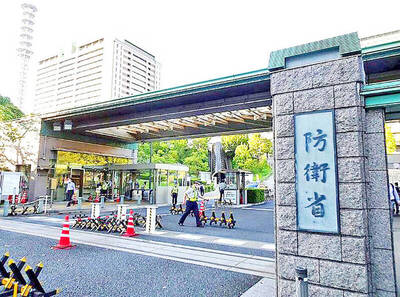Researchers at the National Health Research Institutes (NHRI) have developed a system to treat breast cancer that reduces skin burns, eliminates scarring and causes few side effects, the institute said on Monday.
The system consists of a ring-shaped high-intensity focused ultrasound (HIFU) transducer, a commercial power amplifier, a mechanical positioner and graphical user-interface control software, it said.
HIFU ablation is a non-invasive therapeutic technique that uses non-ionizing ultrasonic waves to heat or ablate tissues, such as tumors, and requires no surgery.

Photo: CNA
It has emerged in the past few years as a non-invasive treatment for breast cancer.
Chen Gin-shin (陳景欣), who heads a research team at the Institute of Biomedical Engineering and Nanomedicine, said the system was developed to overcome several problems associated with conventional HIFU procedures, such as skin burns.
The new system reduces treatment time and improves high-precision ablation under imaging guidance, and the ring-shaped transducer can minimize damage to chest tissue, the lungs and the heart, Chen said.
The ablation of a 5cm tumor can take 30 minutes using the new system, he added.
The removal of a 3cm to 5cm cancerous tumor using a conventional HIFU transducer can take up to two hours, he said.
Breast cancer is the most common cancer type among women in Taiwan, the NHRI said, adding that clinical treatment comprises surgery, radiotherapy, chemotherapy, hormone therapy, targeted therapy and combination therapy.
However, women with breast cancer can experience complications, a high re-excision rate, and possible side effects from radiotherapy and chemotherapy, while some need breast reconstruction after tissue removal, it said.
Although the HIFU procedure has become popular among patients, about 30 to 40 percent of them experience musculoskeletal or heart burns, the NHRI said.
NHRI president Liang Kung-yee (梁賡義) said it is seeking partners for technical transfer so that the prototype system could reach the mass market.
The NHRI’s research findings have been published by the IEEE Transactions on Ultrasonics, Ferroelectrics, and Frequency Control.

LOOKING NORTH: The base would enhance the military’s awareness of activities in the Bashi Channel, which China Coast Guard ships have been frequenting, an expert said The Philippine Navy on Thursday last week inaugurated a forward operating base in the country’s northern most province of Batanes, which at 185km from Taiwan would be strategically important in a military conflict in the Taiwan Strait. The Philippine Daily Inquirer quoted Northern Luzon Command Commander Lieutenant General Fernyl Buca as saying that the base in Mahatao would bolster the country’s northern defenses and response capabilities. The base is also a response to the “irregular presence this month of armed” of China Coast Guard vessels frequenting the Bashi Channel in the Luzon Strait just south of Taiwan, the paper reported, citing a

A total lunar eclipse, an astronomical event often referred to as a “blood moon,” would be visible to sky watchers in Taiwan starting just before midnight on Sunday night, the Taipei Astronomical Museum said. The phenomenon is also called “blood moon” due to the reddish-orange hue it takes on as the Earth passes directly between the sun and the moon, completely blocking direct sunlight from reaching the lunar surface. The only light is refracted by the Earth’s atmosphere, and its red wavelengths are bent toward the moon, illuminating it in a dramatic crimson light. Describing the event as the most important astronomical phenomenon

ENHANCING DETERRENCE: Stationing the missiles in Kyushu would allow Japan to cover waters near Taiwan and China’s coastal areas without any logistical difficulties Japan is to deploy extended-range anti-ship missiles at a Ground Self-Defense Force base in Kumamoto to bolster its defenses, the Yomiuri Shimbun reported on Saturday. The upgraded Type 12 surface-to-ship missile, with a range of more than 1,000km, would be capable of striking targets in the Taiwan Strait and along China’s coast. Originally limited to a few hundred kilometers, the Type 12 was recently modernized ahead of schedule. Deployment, initially slated for next year, has been accelerated after the upgrade was completed sooner than expected, the newspaper said. Stationing the missiles in Kyushu would allow Japan to cover waters near Taiwan and

The presence of Taiwanese politicians at China’s military parade tomorrow would send the wrong message to Beijing and the international community about Taiwan’s sovereignty and democracy, a national security official said yesterday. China is to hold the parade tomorrow to mark the 80th anniversary of Japan’s surrender in World War II. By bringing together leaders of “anti-West” governments such as Russia, North Korea, Iran and Belarus, the parade aims to project a symbolic image of an alliance that is cohesive and unbending against Western countries, the national security official said, speaking on condition of anonymity. Former Chinese Nationalist Party (KMT) chairwoman Hung Hsiu-chu